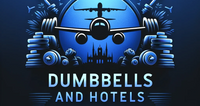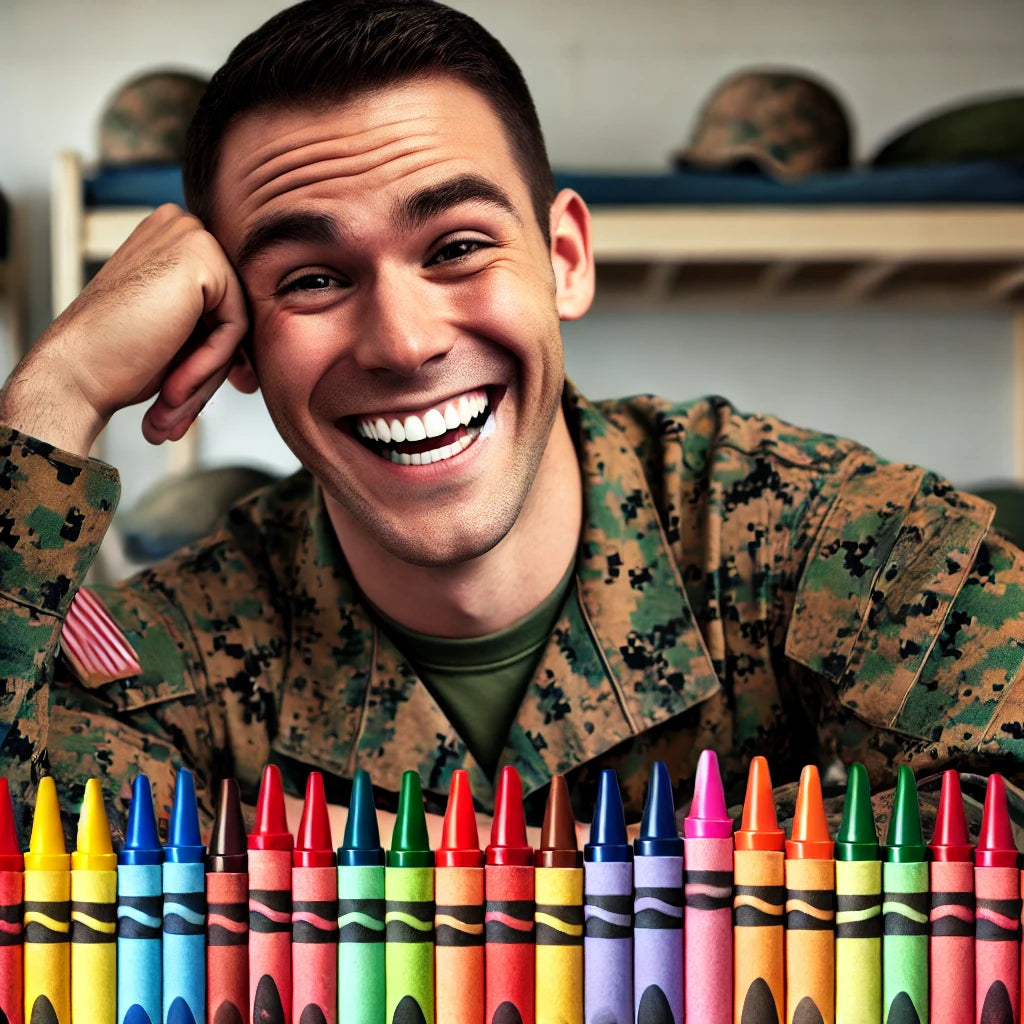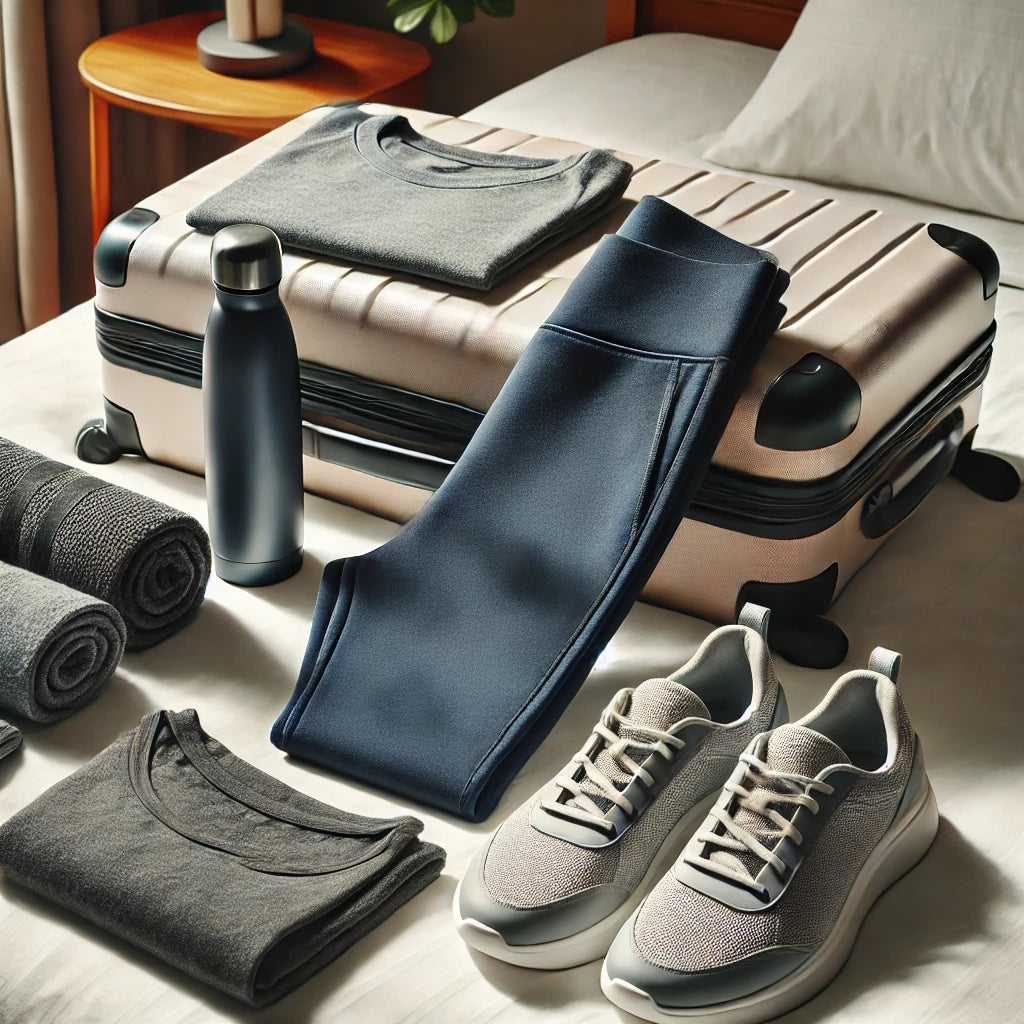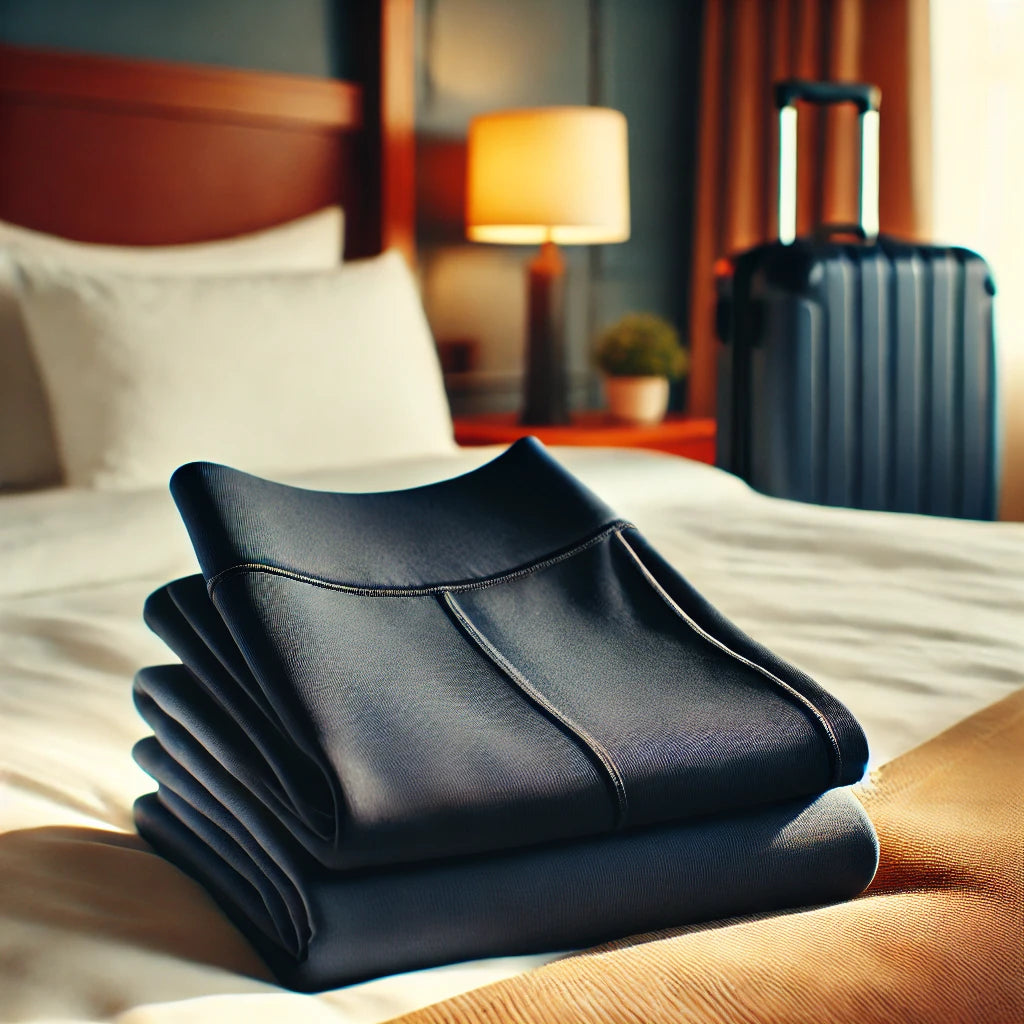The term "USMC crayons" has become a lighthearted inside joke within the Marine Corps community, poking fun at Marines' rugged, straightforward nature. While it may seem odd to outsiders, this playful stereotype is embraced with humor and camaraderie among service members. In this post, we’ll dive into the origins of the "crayon-eating Marine" joke, why it resonates with both active-duty and veteran Marines, and how it has evolved into a symbol of pride, resilience, and a shared sense of humor within the USMC ranks.

The Origins of the Crayon-Eating Marine Joke
The "crayon-eating Marine" joke didn’t just appear out of nowhere—it evolved from common perceptions, and sometimes misconceptions, about the Marine Corps. While all branches of the military hold deep respect for one another, there’s often a friendly rivalry among them. The Marine Corps is frequently viewed as the most physically demanding branch, with training focused on grit, determination, and combat readiness. This emphasis on toughness has led to a stereotype that paints Marines as brawn over brain, despite the intelligence and leadership required to serve in such an elite force.
The origins of the joke likely stem from a combination of this stereotype and a playful misunderstanding of Marine culture. One popular theory is that because the Marines are seen as the “boots on the ground” fighters, their straightforward approach to challenges, including combat, made them an easy target for humor. The idea that Marines might enjoy something as simple as eating crayons—an object associated with children—became a humorous way to highlight their gritty, no-nonsense nature.
Though the joke initially may have been used to tease, Marines have since embraced the humor behind it. By owning the joke, they’ve transformed it into a point of pride. It serves as a symbol of the Marine Corps' unique sense of identity—tough, direct, and unfazed by what others may think.
Why the Joke Resonates with Marines
The crayon-eating joke resonates with Marines because it taps into the spirit of self-deprecating humor and camaraderie that is central to military life. The shared experience of rigorous training, sacrifice, and deployment creates a bond between service members that is often expressed through humor, even if it involves making fun of themselves. This inside joke about eating crayons is not only something Marines can laugh at but also something that reminds them of the camaraderie and brotherhood they share.
Marines are known for their toughness, but that doesn't mean they lack a sense of humor. The ability to laugh at themselves is a hallmark of the Marine Corps culture. Whether it’s dealing with the stress of deployment or the rigors of boot camp, humor plays a critical role in maintaining morale and unity. Marines often joke that if you're not making fun of each other, you’re probably not that close.
This type of humor also serves another important function: it distinguishes Marines from other branches of the military. In the same way that Army soldiers might be called "grunts" or Navy sailors referred to as "swabbies," Marines’ embrace of the crayon-eating joke helps reinforce their distinct identity within the broader military community.
The Evolution of the USMC Crayon Joke
As the joke about Marines and crayons has gained traction, it has taken on a life of its own, even extending beyond military circles. The internet has played a major role in spreading the joke, turning it into a meme that has reached both active-duty service members and civilians alike. From Reddit threads to Facebook groups, the joke has continued to evolve in the digital age, spawning countless memes, inside jokes, and even merchandise.
Yes, merchandise. The crayon-eating Marine joke has become so popular that several companies have started producing crayon-themed products specifically for Marines. For example, Crayons Ready-to-Eat (CRE) is a novelty product designed to poke fun at the joke. These edible crayons come in various flavors and colors, allowing Marines (and non-Marines) to fully embrace the humor. What started as a simple joke has turned into a form of self-expression and branding within the Marine Corps community.
At the same time, the joke has also evolved into a way for Marines to highlight their toughness and resilience. While the original intent of the joke might have been to suggest simplicity, Marines have turned it into a badge of honor. They may laugh about eating crayons, but they know it takes mental and physical toughness to serve in the Marine Corps.
Crayons and Camaraderie: A Symbol of Unity
One of the reasons why the crayon-eating joke continues to thrive is that it taps into a larger aspect of military culture: camaraderie. For Marines, sharing a laugh about something like crayons isn’t just about humor—it’s about reinforcing bonds and solidarity. The shared experiences of boot camp, training exercises, and deployments foster a tight-knit brotherhood where humor is often used to cope with the challenges of military life.
Humor in the military, and especially in the Marine Corps, is often used to break down barriers and lighten the mood in what can be a high-stress environment. Joking about eating crayons is a way for Marines to laugh off the tough guy image that’s often associated with them, while still maintaining a sense of pride in their role.
The crayon-eating joke has also become a way for Marines to connect with veterans. After leaving active duty, many veterans miss the sense of community they felt in the service. The ongoing crayon joke allows them to remain connected to the Marine Corps and to each other, even after their service ends. It’s a simple, humorous reminder of their shared experiences and the unique culture that defines being a Marine.
The Role of Memes in Popularizing the Joke
In today’s digital landscape, memes have become a powerful tool for spreading humor, and the USMC crayon joke is no exception. Social media platforms, forums, and meme pages dedicated to military humor have all played a role in popularizing this inside joke. Memes provide an easy, accessible way for service members to share laughs and inside jokes, often turning niche humor into something widely recognized.
For Marines, the crayon-eating meme is a prime example of how humor can transcend the military and reach civilian audiences. Memes featuring Marines munching on crayons or comparing crayon colors to different ranks have become a regular part of military meme culture. The simplicity of the joke, combined with its relatability, makes it easy to share and enjoy.
One popular meme shows a Marine in uniform, surrounded by crayons, with the caption: “Lunch is served.” Another meme might feature the classic Crayola box with a Marine Corps emblem added for extra effect. These images resonate because they tap into the shared experience of Marine life while also highlighting the joke's absurdity.
Crayons as a Marketing Tool
As mentioned earlier, the popularity of the crayon joke has led to the creation of products aimed specifically at Marines. Novelty items like edible crayons or t-shirts featuring crayon-eating jokes are becoming increasingly popular. This commercialization of the joke demonstrates how deeply it has permeated Marine Corps culture.
The edible crayon product, Crayons Ready-to-Eat, is an excellent example of how Marines have embraced the joke to the point where it has become a marketing tool. The product is packaged like traditional crayons, but they’re completely edible, and come in flavors like “Jarhead Grape” and “Leatherneck Lemon.” These kinds of products allow Marines to engage with the joke in a tangible way, turning an internet meme into a fun, lighthearted gift or souvenir.
Additionally, several veteran-owned businesses have capitalized on the crayon-eating joke by incorporating it into their branding. These companies often use the joke to foster a sense of community among Marines, both active duty and veterans, while providing products that appeal to their unique sense of humor.

Humor as a Coping Mechanism
Beyond the lightheartedness, the crayon-eating joke serves a deeper purpose within the Marine Corps: it’s a coping mechanism. Military life can be incredibly stressful, with long deployments, time away from family, and the physical and mental toll of combat. For Marines, humor often serves as a way to relieve stress, build resilience, and maintain morale.
Psychologists have long recognized the importance of humor in high-stress environments. In military settings, jokes and pranks help to build camaraderie while also providing a much-needed emotional release. The crayon-eating joke, while simple, fits into this larger tradition of military humor as a way to lighten the mood and strengthen bonds.
For Marines returning from deployment, the ability to laugh at something as trivial as a crayon serves as a reminder that not everything in life has to be serious. It provides a sense of normalcy in what can be a chaotic environment.
Crayons as a Rite of Passage
For many Marines, the crayon-eating joke represents more than just humor—it’s a rite of passage. Much like the nickname "Devil Dog," which has historical roots dating back to World War I, the crayon joke has become a part of the initiation into Marine culture. New recruits often hear the joke early in their training, and it becomes a recurring theme throughout their military career.
The joke serves as a reminder that, no matter how tough or serious their job may be, Marines are still able to find humor in the little things. This balance between toughness and humor is a key part of the Marine Corps identity. By embracing the crayon-eating stereotype, Marines continue to perpetuate the unique blend of resilience and self-deprecation that defines their branch.
Veterans and the Crayon-Eating Joke
The crayon joke doesn’t end when Marines leave active duty. Many veterans continue to embrace the joke as a way to stay connected to their military roots. Veteran organizations, social media groups, and events often use the crayon-eating joke as a way to foster community and humor among former service members.
For many veterans, life after the military can feel isolating. The camaraderie and sense of belonging that comes with serving in the Marine Corps can be difficult to replace in civilian life. The crayon joke provides a simple, lighthearted way for veterans to stay connected to their military identity and to each other.
Veteran-owned businesses, in particular, have been instrumental in keeping the joke alive. Many of these businesses produce crayon-themed products or incorporate the joke into their marketing, helping veterans stay connected to the larger Marine Corps community.
The Historical Context of Military Humor
To fully understand why the crayon-eating joke has resonated so deeply within the Marine Corps, it’s important to examine the role of humor in military history. Humor has been a core part of military life for centuries, serving as a way to relieve the tension and stress of combat. Whether through jokes, songs, or pranks, soldiers and service members throughout history have found ways to use humor to boost morale and maintain their sanity in high-pressure environments.
In the context of the Marine Corps, humor has often been a way to foster group identity and manage the hardships of training, deployment, and combat. From World War II to the wars in Iraq and Afghanistan, Marines have always used humor as a way to build camaraderie and cope with difficult situations. The crayon-eating joke is just one example of this long tradition of military humor, but it’s one that has stuck because of its simplicity and universal appeal.
While some military jokes are specific to a certain event or era, the crayon joke is timeless. It doesn’t require any detailed knowledge of Marine Corps history or operations—it’s a straightforward, playful jab that everyone can understand, even civilians. This accessibility is part of what makes the joke so enduring.
Comparing Marine Corps Humor to Other Military Branches
While the Marines are known for their rough-and-tumble sense of humor, they are not alone in using jokes to build camaraderie and foster group identity. Each branch of the military has its own unique brand of humor, often reflecting the specific challenges and stereotypes associated with that branch.
For example, soldiers in the Army might joke about the grueling nature of infantry life, while Navy sailors poke fun at their long deployments at sea. The Air Force is often portrayed as the "cushiest" branch, leading to jokes about airmen enjoying more luxurious accommodations and easier assignments. Even the Coast Guard has its own set of inside jokes, often centered around its role in homeland defense rather than combat.
In this context, the crayon-eating Marine joke fits into a broader tradition of friendly inter-branch rivalry. While the branches are united by their common mission to protect and serve, they are also distinct in terms of culture, training, and operational focus. This rivalry is often expressed through humor, with each branch taking jabs at the others in good fun. Marines, in particular, are known for embracing their stereotypes—whether it’s being called “jarheads” or “devil dogs,” Marines take pride in their unique identity within the military.
What sets the crayon-eating joke apart is that it’s become almost synonymous with the Marine Corps in popular culture. While other branches have their own jokes and stereotypes, none has taken on the iconic status that the crayon joke has achieved for the Marines.
The Role of Self-Deprecating Humor in the Marine Corps
Self-deprecating humor plays a vital role in Marine Corps culture, and the crayon-eating joke is a perfect example of this. In an environment where toughness, discipline, and confidence are highly valued, it might seem counterintuitive for Marines to embrace a joke that paints them as simple-minded or childlike. But this is precisely what makes the joke so powerful.
By leaning into the crayon-eating stereotype, Marines are demonstrating that they are secure enough in their identity to laugh at themselves. This ability to poke fun at their own image is a mark of confidence and resilience. Rather than feeling insulted by the joke, Marines have adopted it as a symbol of their strength and camaraderie.
Self-deprecating humor also serves as a form of social bonding within the Marine Corps. By making jokes about themselves, Marines can diffuse tension and foster a sense of unity. This is especially important in high-stress environments like boot camp or during deployment, where the pressures of training or combat can take a mental and emotional toll on service members.
The crayon-eating joke provides a shared point of reference for Marines, both active duty and veterans, to come together and laugh. Whether they’re joking about it in the barracks, at a reunion, or online, the joke helps to strengthen the bonds between Marines and keep the spirit of camaraderie alive.
Crayons, Marines, and Social Media: How the Joke Spread
The crayon-eating joke truly gained momentum with the rise of social media. While the stereotype has been around for years, platforms like Facebook, Instagram, and Reddit allowed the joke to reach a much wider audience. Meme culture, in particular, played a huge role in turning the joke into a viral sensation.
Military meme pages on platforms like Instagram and Reddit are filled with jokes that poke fun at various aspects of military life, but the crayon-eating Marine meme has taken on a life of its own. These memes often feature humorous depictions of Marines with crayons in hand or highlight the different "flavors" of crayons that might appeal to a Marine's palate.
One of the reasons these memes resonate so strongly is that they are instantly recognizable to anyone familiar with military humor. Even civilians who have never served can appreciate the simplicity and absurdity of the joke. For Marines, seeing themselves portrayed in these memes reinforces the shared identity and sense of humor that define their culture.
The internet has also allowed Marines stationed around the world to participate in the joke, creating a global community united by their shared experience. Whether they’re deployed overseas or back home, Marines can connect through social media to share laughs and keep the crayon-eating tradition alive.
The Impact of Memes on Civilian Perception of the Marine Corps
One interesting aspect of the crayon-eating joke is how it has shaped civilian perceptions of the Marine Corps. While the joke originated within the military, it has since spread to civilian audiences, who may not fully understand the context but appreciate the humor nonetheless. This has led to some civilians associating the Marine Corps with the crayon-eating stereotype, sometimes without understanding its deeper significance.
For civilians, the joke may seem like a simple, playful jab at the Marines, but for those who have served, it represents something much more profound. It’s a symbol of pride, resilience, and the ability to laugh in the face of adversity. In this way, the joke serves as a bridge between the military and civilian worlds, offering a lighthearted glimpse into Marine culture while also fostering a sense of connection and understanding.
However, there’s also a risk that the joke could reinforce misconceptions about the Marine Corps. While Marines are happy to laugh at the crayon-eating stereotype, they are also highly trained professionals who undergo rigorous physical and mental preparation to serve their country. It’s important for civilians to recognize that the joke is just that—a joke—and not a reflection of the true intelligence, skill, and discipline required to be a Marine.

Humor as a Tool for Recruiting and Retention
Interestingly, the crayon-eating joke has even found its way into Marine Corps recruiting and retention efforts. While not an official part of Marine Corps marketing, the joke has been embraced by certain recruiting offices and veteran groups as a way to appeal to younger recruits and maintain a sense of humor within the ranks.
In an era where social media plays a major role in shaping public perception, embracing humor can be an effective way to reach new audiences. Younger generations, in particular, are drawn to brands and organizations that don’t take themselves too seriously and are willing to engage in lighthearted, self-deprecating humor. By leaning into the crayon joke, the Marine Corps has been able to humanize its image and make itself more relatable to potential recruits.
In addition to attracting new recruits, humor also plays a role in retention. Marines who feel connected to the culture and camaraderie of the Corps are more likely to stay in the service. The crayon-eating joke is just one of many ways that the Marine Corps fosters a sense of identity and belonging among its members, helping to keep morale high and maintain retention rates.
Crayon-Eating in Popular Culture
The crayon-eating Marine joke has become so popular that it has even made its way into popular culture. References to the joke can be found in everything from TV shows to online comics, further cementing its place in the public consciousness. These references often highlight the absurdity of the stereotype while also paying homage to the toughness and resilience of Marines.
For example, some comedy sketches have featured Marines eating crayons as a humorous take on military life, while animated shows have included subtle nods to the joke in their depictions of military characters. These pop culture references not only bring the joke to a wider audience but also serve as a testament to the enduring popularity of the crayon-eating stereotype.
At the same time, the spread of the joke into popular culture has helped to keep it relevant and fresh. While the crayon-eating stereotype has been around for years, its continued presence in memes, TV shows, and other forms of media ensures that it remains a part of Marine Corps culture for future generations.
How Marines Use the Joke to Engage Civilians
One of the most interesting aspects of the crayon-eating joke is how Marines use it to engage with civilians and introduce them to Marine Corps culture. Whether at public events, social gatherings, or online, Marines often use the joke as a way to break the ice and share a laugh with people who may not be familiar with military life.
For example, Marines might give out crayon-themed gifts or souvenirs at events to playfully acknowledge the stereotype. Some veteran-owned businesses even sell crayon-flavored beverages or snacks as a fun way to connect with both military members and civilians. These products allow civilians to participate in the joke while also learning more about the unique culture and humor of the Marine Corps.
By using humor to engage civilians, Marines are able to bridge the gap between military and civilian life. The crayon-eating joke provides a lighthearted way to introduce people to the Marine Corps while also highlighting the strong sense of camaraderie and resilience that defines the branch.
Crayon-Eating and Veteran Mental Health
Beyond its humor, the crayon-eating joke has also become a part of the conversation around veteran mental health. After leaving active duty, many veterans struggle with feelings of isolation and disconnection from the community they once belonged to. Humor, including the crayon joke, provides a way for veterans to stay connected to their Marine identity and to each other.
For veterans dealing with the challenges of post-military life, jokes like the crayon-eating stereotype can serve as a reminder of the camaraderie and shared experiences that defined their time in the service. It’s a way to hold on to the brotherhood and support that the Marine Corps provided, even after transitioning to civilian life.
In addition to fostering community, humor can also be an important coping mechanism for veterans dealing with stress, anxiety, or depression. By embracing the crayon joke, veterans can find comfort in laughter and use humor as a way to process their emotions and experiences. This type of humor, while lighthearted, serves a deeper purpose in helping veterans maintain their mental well-being.
The Enduring Legacy of the Crayon-Eating Marine
The crayon-eating Marine joke is more than just a meme or an inside joke—it’s a reflection of the unique culture, humor, and camaraderie that defines the Marine Corps. From its origins as a playful stereotype to its place in popular culture, the joke has evolved into a symbol of Marine resilience, toughness, and the ability to laugh at adversity.
While the joke may seem simple, its impact on Marine Corps culture is profound. Whether used to foster camaraderie, engage civilians, or connect veterans, the crayon-eating joke continues to play an important role in Marine life. For as long as there are Marines, it’s likely that the crayon-eating stereotype will endure, serving as a reminder that no matter how tough the job, there’s always room for a little humor.
The Business of Crayons: How Veterans Capitalize on the Joke
Interestingly, the crayon-eating joke has also been capitalized on by veterans in the business world. From veteran-owned t-shirt companies to novelty edible crayon businesses, the joke has transformed into a marketable idea, allowing former Marines to make light of the stereotype while building businesses.
One of the most well-known examples of this is "Crayons Ready-to-Eat" (CRE), a veteran-owned business that sells edible crayons. What started as a humorous jab at the crayon-eating stereotype quickly turned into a successful product that capitalizes on the joke. These edible crayons are made from colorful chocolate, allowing Marines (and anyone else) to partake in the fun of “eating crayons” without the health risks of consuming the real thing.
Crayons Ready-to-Eat gained viral attention not only in military circles but also in the broader veteran community and civilian markets. The product became so popular that it expanded its offerings to various themed crayon boxes, each color representing a different aspect of military life. For example, the colors could be labeled as “Semper Fi Green” or “Jarhead Yellow.” CRE took the joke to a new level by making it interactive and consumable, showing how veterans can take ownership of military humor and turn it into a lucrative business opportunity.
Beyond edible crayons, many veteran-owned apparel companies use the crayon-eating joke as a central theme in their product lines. T-shirts featuring slogans like “Fueled by Crayons” or “Marine Corps: Crayon Consumers Since 1775” are popular within military communities. These products not only allow veterans to showcase their pride in the Marine Corps but also offer a humorous way to connect with others who understand the inside joke.
This trend highlights how humor—especially self-deprecating humor—can be a powerful tool in business. By embracing the crayon-eating joke and turning it into a marketable product, veterans have found a way to stay connected to the Marine Corps community while building a brand around a shared sense of humor.

Crayon Jokes in Boot Camp: Initiation into Marine Corps Culture
For many Marines, the crayon-eating joke is something they encounter as early as boot camp. Boot camp is the first place where recruits are introduced to the unique humor that defines the Marine Corps, and the crayon joke is often one of the first inside jokes they hear. It serves as a rite of passage—an initiation into the broader Marine culture.
Marine Corps boot camp is known for being one of the most intense and grueling training programs in the military. Recruits are pushed to their physical and mental limits, often enduring long days of rigorous physical training, drills, and classroom instruction. In this high-pressure environment, humor becomes an essential coping mechanism.
Drill instructors, known for their tough love approach, sometimes incorporate humor to break the tension. The crayon-eating joke might be referenced in a lighthearted moment, or recruits might hear about it from older Marines during their breaks. By the time recruits graduate and become full-fledged Marines, the joke has become a shared point of reference—something that binds them to their fellow Marines and to the generations that came before them.
Beyond boot camp, Marines continue to joke about crayons throughout their military careers. Whether stationed at a base or deployed overseas, the crayon joke is a constant reminder of the humor that helps them get through the toughest of times. It’s also something that connects Marines of different ranks and job specialties, allowing them to bond over their shared identity.
How Marine Corps Spouses and Families Engage with the Joke
The crayon-eating joke is not limited to just the Marines themselves—families and spouses of service members often embrace the joke as well. Marine Corps spouses, in particular, play a vital role in supporting their loved ones throughout their military careers, and humor can be an important way for them to cope with the unique challenges of military life.
Many Marine spouses and family members engage with the crayon joke by giving Marine-themed gifts that incorporate the joke. Crayon-shaped birthday cakes, gag gifts like Crayola boxes with custom Marine colors, and even crayon-themed parties have become popular among families celebrating Marine-related milestones. These playful tributes to the joke help to lighten the mood, especially during difficult times like deployments or PCS (Permanent Change of Station) moves.
Additionally, Marine families often use humor, including the crayon-eating joke, to explain the military lifestyle to their children. When kids ask about what their Marine parent does, it’s sometimes easier to explain through a joke, such as saying, “Daddy loves eating crayons because it makes him strong!” While this explanation is tongue-in-cheek, it helps to create a sense of pride and playfulness around the Marine Corps identity, allowing children to feel connected to their parent’s role in the military.
Marine Corps spouse and family support groups also embrace the humor of the crayon joke. These groups, often organized online or through local Marine bases, provide a space for spouses to share their experiences, exchange resources, and offer moral support. Incorporating humor into these communities helps to foster a sense of belonging and understanding, especially among families who may be geographically isolated due to military deployments or assignments.
Crayon-Eating as an Icebreaker in Veteran Communities
One of the most notable aspects of the crayon-eating joke is its ability to serve as an icebreaker in veteran communities. Whether Marines are meeting each other for the first time or reconnecting at a reunion, the joke provides a way to establish a shared bond quickly. Veterans, who may have spent years apart, often find themselves instantly connected through their mutual understanding of the crayon joke.
Veterans’ organizations and events frequently make use of the joke to foster camaraderie among their members. At Marine Corps birthday balls, reunions, and other veteran gatherings, it’s not uncommon to see crayon-themed decorations, T-shirts, or even edible crayons as part of the celebration. These elements create a lighthearted atmosphere that helps to ease any potential awkwardness when reconnecting with old friends or meeting new people.
In particular, the crayon joke can help younger veterans integrate into older, more established veteran communities. Marines who served in Iraq and Afghanistan may not have as many shared experiences with veterans from Vietnam or Desert Storm, but the crayon joke is a cultural bridge that transcends the specific era of service. Whether they served 50 years ago or 5 years ago, Marines can use humor to connect with each other across generational divides.
The crayon-eating joke has even made its way into veteran support programs and nonprofit organizations. Some veteran-focused groups use humor as part of their outreach efforts, recognizing that a shared sense of humor can help veterans open up about more serious issues like PTSD, depression, or the difficulties of transitioning to civilian life. By incorporating jokes like the crayon-eating stereotype into their messaging, these organizations are able to create a more approachable and relatable environment for veterans in need of support.
The Psychological Benefits of Humor in the Military
The popularity of the crayon-eating joke among Marines speaks to a larger psychological phenomenon: the importance of humor in high-stress environments. Research shows that humor can be a powerful coping mechanism, especially for individuals who face high levels of stress, anxiety, or trauma. For Marines, who are frequently placed in physically and mentally demanding situations, humor becomes an essential tool for maintaining resilience and emotional well-being.
Humor has been shown to provide a number of psychological benefits, including reducing stress, improving mood, and fostering social connections. In military settings, where service members often face long deployments, separation from family, and the challenges of combat, humor offers a way to cope with difficult emotions and maintain a sense of normalcy. The crayon-eating joke, in particular, provides a simple yet effective way for Marines to lighten the mood, release tension, and bond with their fellow service members.
In addition to the immediate psychological benefits, humor can also help Marines process their experiences over the long term. By joking about the crayon-eating stereotype, Marines are able to take ownership of the stereotype and transform it into something positive. Rather than feeling burdened by the toughness or simplicity often associated with the Marine Corps image, Marines can laugh at the joke and feel proud of the camaraderie and resilience it represents.
Moreover, humor can help to break down barriers between service members and their superiors. In the highly structured environment of the military, humor provides a way for officers and enlisted Marines to connect on a more personal level. While professionalism is always maintained, lighthearted jokes like the crayon stereotype help to humanize interactions and foster a sense of mutual respect and understanding.
Crayon-Eating and the Broader Tradition of Military Stereotypes
The crayon-eating joke is just one example of a broader tradition of military stereotypes that have been embraced by service members across different branches. While each branch has its own unique identity and culture, certain stereotypes have emerged over time that playfully highlight the perceived differences between branches.
For example, soldiers in the Army are often jokingly referred to as "grunts" due to the demanding nature of infantry life, while Navy sailors are sometimes called "squids" or "swabbies" in reference to their duties at sea. The Air Force, known for its advanced technology and relatively comfortable lifestyle, is often the subject of jokes about “living in luxury” compared to other branches. Even the Coast Guard has its own set of playful stereotypes, with jokes about "saving the beach" or being the "forgotten branch."
These stereotypes, much like the crayon-eating joke, are rarely meant to offend—they are part of a shared tradition of military humor that helps to reinforce branch identity while also fostering inter-service camaraderie. In fact, service members often take pride in their branch’s stereotypes, recognizing that they reflect the unique challenges and strengths of their respective roles.
For Marines, the crayon-eating joke represents a playful exaggeration of their toughness and directness. While the stereotype may paint Marines as simple-minded, it’s ultimately a celebration of their resilience, determination, and ability to get the job done no matter the circumstances. By embracing the joke, Marines demonstrate their pride in the Marine Corps’ reputation as the “tip of the spear”—the first to fight and the last to back down.

Why the Joke Persists
Ultimately, the crayon-eating joke persists because it represents something fundamental about Marine Corps culture. It’s more than just a punchline; it’s a symbol of resilience, camaraderie, and the ability to laugh in the face of adversity. Marines have a unique way of finding humor in even the toughest situations, and the crayon-eating joke is a perfect example of that.
The joke has also transcended its original military context, becoming a recognizable part of internet culture. The humor may be specific to the Marine Corps, but its accessibility has allowed it to reach a broader audience. Whether through memes, merchandise, or inside jokes, the crayon-eating Marine has become a symbol of the Marine Corps’ tough yet playful spirit.
In conclusion, while eating crayons may never become a reality, the joke has become a beloved part of Marine Corps culture. It’s a reminder that no matter how tough or serious life gets, there’s always room for a little humor. For Marines, the crayon-eating joke is a way to celebrate their uniqueness, their toughness, and most importantly, their ability to laugh at themselves.
Read More
- USMC Crayons: The Colorful Tradition Every Marine Should Know
- From Battlefield to Crayon Box: The Story Behind USMC Crayons
- USMC Crayons Explained: A Fun Look at Marine Corps Culture
- Why USMC Crayons Have Become a Symbol of Marine Pride
- USMC Crayons: How a Joke Turned into Marine Corps Memorabilia
- The History of USMC Crayons: From Myth to Marine Reality





